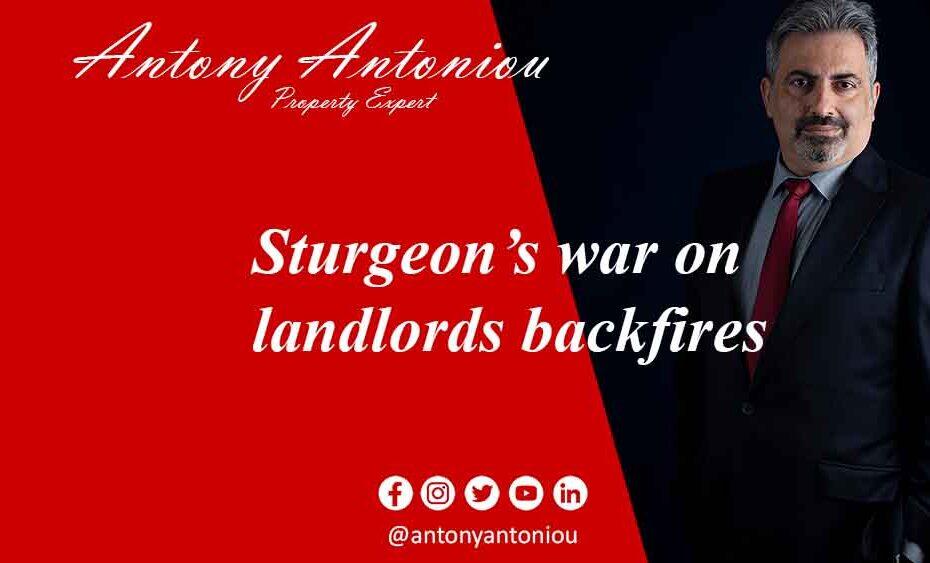Sturgeon’s war on landlords backfires
“Rising Rents in Scotland Outpace London Amidst Sturgeon’s Landlord Policies”
Introduction:
In a surprising twist, Scotland has witnessed a staggering surge in rental costs that now outpace even London, as former First Minister Nicola Sturgeon’s rent control and eviction ban policies appear to have backfired. The Scottish National Party’s (SNP) measures, initially introduced in response to a perceived cost of living crisis, have inadvertently accelerated rental growth in Scotland, leaving both landlords and tenants grappling with unforeseen consequences.
The Impact of Rent Control:
In September 2022, the Scottish government under Nicola Sturgeon imposed a freeze on rent payments for hundreds of thousands of Scots and instituted a ban on most evictions. The intention was to alleviate what Sturgeon called a “humanitarian emergency” due to the escalating cost of living. However, recent data from property website Zoopla reveals that these measures have led to an unintended consequence: a staggering 12.7% increase in rental costs in Scotland over the past year, surpassing the national average of 10.5% and even exceeding London’s 12.4% growth rate.
Extended Measures and Consequences:
In January, the Scottish government extended these measures, replacing the rent freeze with a 3% cap on rent increases. The eviction ban, originally set to expire at the end of the current month, is now expected to be extended until March of the following year. Richard Donnell, executive director of Zoopla, points out that these policies have left landlords with no choice but to increase rents as much as possible between tenancies, often exceeding the imposed cap. Landlords face rising costs and are incentivized to maximize rental income when properties become vacant, as demand continues to surge.
The Rental Landscape in Scotland:
The average annual rent in Scotland has risen from £7,068 in March 2020 to £8,796 in July of this year, marking an increase of nearly £2,000. This growth outpaces London, where tenants have experienced increases of £4,488 over the same period. Zoopla attributes this surge in Scottish rents to a unique set of laws that encourage landlords to maximize rents for new tenancies to cover costs, as they are unable to do so once a lease is signed. This dynamic further fuels price growth in Scotland relative to other parts of the UK.
Government Response:
Patrick Harvie, the Scottish government’s tenants’ rights minister, defends the policies, stating that they have stabilized rents and allowed tenants to remain in their homes. Since April 1, 2023, private landlords in Scotland subject to the cap have been permitted to increase a tenant’s rent in-tenancy by up to 3%, with the possibility of approval for an increase of up to 6% in specific circumstances. Harvie emphasizes that this approach differs significantly from the rest of the UK, where private tenants face uncapped rent increases both during and between tenancies.
Future Plans:
The Scottish government remains committed to its tenants’ rights agenda. Harvie states that a Housing Bill is in the works to establish a “New Deal for Tenants,” which includes the introduction of long-term rent controls for the private rented sector. This signals the government’s intention to continue shaping the rental landscape in Scotland in the years to come.
Conclusion:
While Nicola Sturgeon’s rent control and eviction ban policies were introduced with good intentions, their unintended consequences have led to skyrocketing rental costs in Scotland, surpassing even the famously expensive London market. The situation highlights the complex nature of housing policies and their potential repercussions, leaving both landlords and tenants to navigate an uncertain rental landscape in Scotland’s future.

